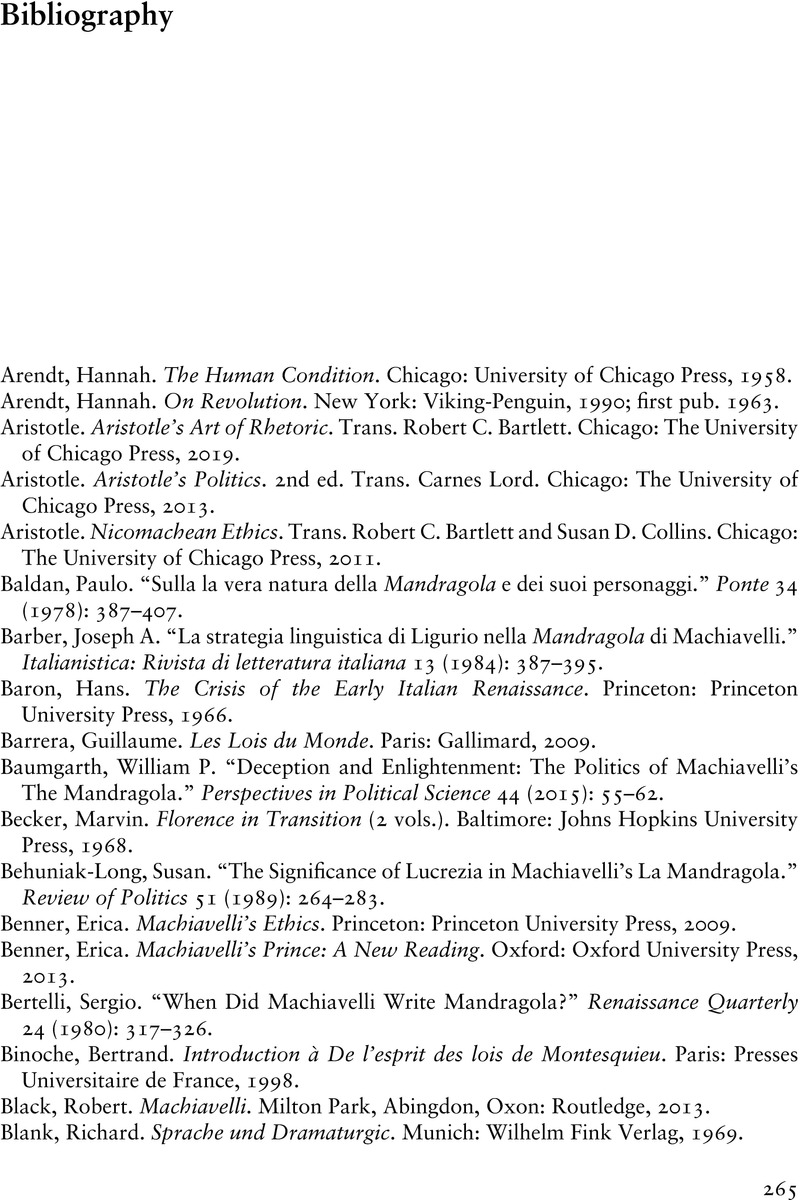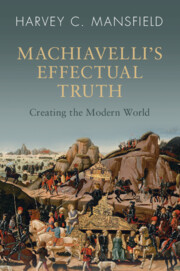Bibliography
Published online by Cambridge University Press: 07 September 2023
Summary

Information
- Type
- Chapter
- Information
- Machiavelli's Effectual TruthCreating the Modern World, pp. 265 - 270Publisher: Cambridge University PressPrint publication year: 2023
